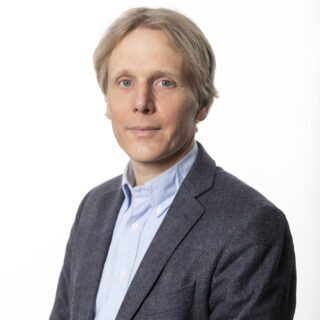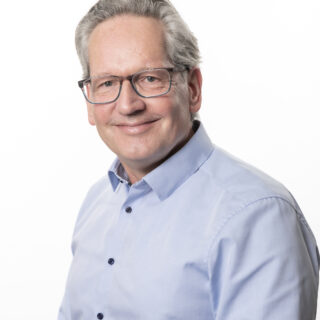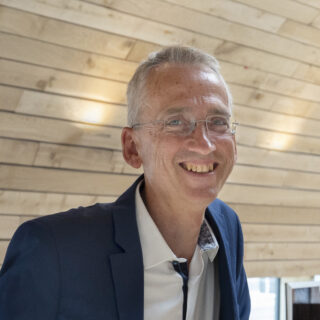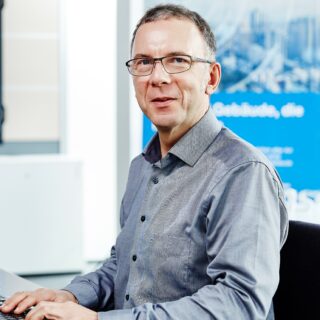
Deerns’ holistic understanding of the data centre market and its technologies is helping clients to navigate the complexities of alternative energy sources.
Data centres fuel our digital economy, from cloud computing to global communication networks. As digital services become increasingly critical, data centres’ demand for energy has grown exponentially.
Reliable, continuous power is paramount in data centres to prevent service interruptions. Now, the quest for alternative energy sources is not just an environmental or regulatory mandate but a critical operational strategy.
The Imperative for Change
This growing demand for computing power places a significant burden on existing grid infrastructures, which were primarily designed to handle far lower capacities. Today, the typical power consumption of a mid- to large-sized data centre can range from 500 kW to over 60 MW, with projections reaching into the gigawatt territory due to advances in technologies like artificial intelligence.
This surge underscores a critical challenge: most of our grid infrastructures are heavily reliant on carbon-intensive energy sources. Regions like Iceland and the Nordic countries benefit from geothermal and hydroelectric power respectively. Many areas however, still depend on coal, prompting an urgent need for a global transition towards more sustainable energy sources.
Regulatory and Market Dynamics
Globally, governments are tightening regulations around energy efficiency. The EU’s Energy Efficiency Directive, the UK’s growth plans, and the UN’s climate goals all reflect a concerted move towards stricter oversight. Data centres, as significant energy consumers, are a focus area of this regulatory shift. The new Corporate Sustainability Reporting Directive (CSRD) in the EU is set to increase reporting requirements, pressing companies to accelerate their sustainability efforts.
Here’s where we navigate Complexity
Solar and wind energy are the most accessible renewables, but they come with their challenges. Data centres located in major hubs (such as the FLAP-D cities of Frankfurt, London, Amsterdam, Paris, and Dublin) often lack the space to support extensive solar arrays or wind farms. Moreover, the intermittent nature of solar and wind energy calls for robust next generation storage solutions to manage supply gaps.
The industry is exploring several innovative paths to overcome these hurdles. Hydrogen fuel cells, for instance, offer a promising avenue but require significant infrastructure for hydrogen production together with elements of carbon capture. Small modular nuclear reactors present another option, offering a more carbon-efficient alternative to traditional nuclear power, though they carry inherent risks and public scepticism.
Geothermal energy, using ranking engines, could harness the heat generated by high-density computing. This technology, however, is still in the nascent stages and is geographically dependent.
Adopting new technologies and transitioning to alternative energy sources requires specific expertise to come to terms with:
- scenario mapping
- capital investment
- operational expenditure
- emerging technologies’ return on investment (ROI).
" Financial incentives from governments can aid this transition, but the data centre industry must also navigate complex financial landscapes and market readiness for these technologies.
Deerns’ Strategic Approach
At Deerns, we are exploring hybrid energy solutions combining traditional renewables like solar and wind with emerging technologies like hydrogen fuel cells to create more resilient and sustainable energy ecosystems. These systems could potentially allow data centres to operate closer to, or completely off, the grid, reducing reliance on traditional power sources and mitigating transmission losses.
This strategic diversity in energy sourcing is tailored to meet the complex and varied needs of modern data centres, and offers numerous benefits that include:
- Increased system reliability and longevity
- Reduced carbon emissions
- Enhanced energy efficiency
- Operational efficiency and cost savings
- Enhanced sustainability profile
- Future readiness and regulatory alignment
- Positive local ecosystem impact.
To set the pace, Deerns is leveraging its extensive cross-cutting expertise in mechanical, electrical, and plumbing (MEP) engineering, smart buildings and site management to develop bespoke energy solutions that align with both regulatory frameworks and corporate sustainability goals.
By conducting in-depth feasibility studies and embracing hybrid energy models, Deerns can facilitate the integration of multiple energy sources, positioning data centres to benefit from more sustainable and stable power supply solutions. This approach will not only support data centres in achieving operational excellence but also contribute to the broader transition towards a more sustainable and reliable digital infrastructure ecosystem.
As digital infrastructure becomes more integral to our global economy, the shift towards sustainable energy sources is not only beneficial but essential. By leveraging advanced technologies and innovative approaches, the data centre industry can lead the way in energy transition, setting a precedent for other sectors to follow. This path forward will require collaboration across governments, industries, and communities to reshape how we think about and use energy in an increasingly digital world.
" Join us in shaping the future of energy! Reach out to us today to find out how we can support your energy transition.


















































